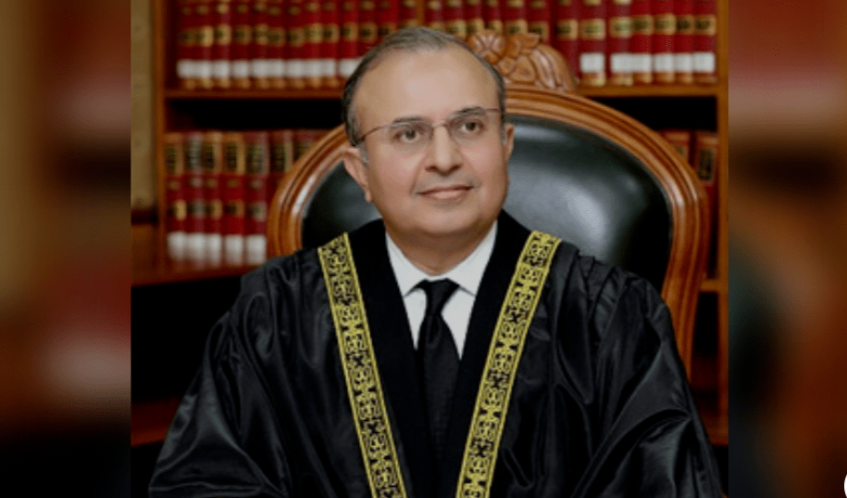Chief Justice of Pakistan (CJP) Yahya Afridi has refused to grant a No-Objection Certificate (NOC) to senior puisne judge Justice Syed Mansoor Ali Shah, preventing him from travelling abroad to attend high-profile international legal events.
Justice Shah had been invited to represent Pakistan at Global Constitutionalism 2025, scheduled at Yale Law School, USA, from September 10–13, where he was expected to present a paper on “Artificial Intelligence and Judging.” The event brings together senior judges from across the globe alongside renowned scholars from Yale, Harvard, and Princeton.
Even though Yale Law School formally requested CJP Afridi for Justice Shah’s official nomination, the Supreme Court Registrar responded on August 6, citing institutional commitments. The registrar emphasised that the judicial year of the Supreme Court begins on September 8, traditionally marked by a full court session, engagements with the legal fraternity, and strategic deliberations. This year, the session carried additional weight with the introduction of new technology-driven Supreme Court Rules, requiring the presence of all judges.
Justice Shah’s Letter to the Chief Justice
On August 15, Justice Shah wrote to CJP Afridi, reiterating his request for an NOC. He highlighted:
- He did not fully utilise his summer vacation.
- During CJP Afridi’s tenure, he decided 3,956 cases, demonstrating his workload balance.
- He is neither on the Constitutional Bench nor part of any administrative committee.
- The court currently has a full strength of 25 judges, ensuring no disruption in his absence.
- His travel was aligned with the court’s vacation period (September 5–13).
Justice Shah also raised concerns that delays or refusals without reasoning could create perceptions of bias or retaliation against judges with independent views. He argued that such practices may harm the credibility, collegiality, and judicial independence of the Supreme Court.
He further stressed that the Court is not a regimented body like the armed forces but thrives on the independence of judges. Any restrictions that appear to compel compliance, he said, risk undermining the Court’s constitutional foundations.
Other Missed Opportunities
Justice Shah also received invitations to address the New York City Bar Association on September 8 and to participate in an academic dialogue with Professor Noah Feldman at Harvard University on September 10.
This isn’t the first time someone has blocked his international participation. In February 2025, organisers from the Al Baraka Forum and the OIC Arbitration Centre (OIC-AC) invited Justice Shah to speak at Arbitration Week in Riyadh, Saudi Arabia. He also intended to perform Umrah during that visit. However, his request for ex-Pakistan leave was left unanswered, forcing him to cancel the trip.
Institutional Commitments vs. Judicial Independence
The repeated denial of NOCs has sparked discussions within legal and academic circles. While the Supreme Court administration insists that institutional obligations take precedence, Justice Shah’s letters highlight growing concerns about judicial independence and academic freedom.
Observers note that restricting judges from participating in prestigious international forums risks isolating Pakistan’s judiciary from global legal discourse, particularly in emerging areas such as artificial intelligence and constitutional law.
Conclusion
The ongoing impasse between Justice Mansoor Ali Shah and CJP Yahya Afridi underscores deeper tensions within the Supreme Court over judicial independence, collegiality, and global representation. The future opportunities for Justice Shah may either flourish or fade, but this issue has already sparked a debate about balancing institutional discipline and judicial autonomy in Pakistan’s highest court.



